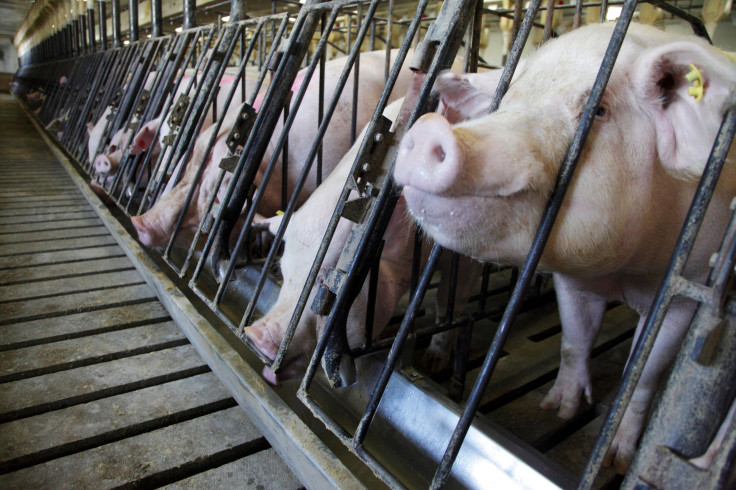Global Warming Update: Smithfield Foods, Major Pork Producer, Plans To Cut Greenhouse Gas Emissions

One of the largest pork processors in the United States has planned to take a lead role in reducing emissions from its farms and livestock supply. The announcement came amid concerns that American livestock production creates a dangerous amount of greenhouse gases.
Smithfield Foods has aimed to cut emissions by 25 percent of 2010 levels by 2025, the meat company said Monday. That goal would stop roughly four million metric tons of carbon dioxide from entering the atmosphere. Put another way, those reductions are roughly the equivalent of removing roughly 900,000 cars from the road, according to the company. Estimates from the Environmental Protection Agency pegged that number closer to 850,000 cars.
“We are proud to lead the industry and set another first by launching an endeavor that is both environmentally beneficial and economically feasible,” Kenneth M. Sullivan, the president and CEO of Virginia-based Smithfield Foods, said in a press release announcing the goals. “While we will have unique challenges meeting this goal as the world’s largest pork processor and hog producer, our size and scale also means that, if successful, we can make a significant, positive impact.”
Smithfield Foods said it is partnering with the Environmental Defense Fund, an advocacy group, and will collaborate with universities to make and meet their emissions goals. To do so, it has identified several strategies for improving fertilizer efficiency and soil health to reduce the release of nitrous oxide from their grain farms, improving the efficiency of technologies they use and improving the efficiency of their shipment systems. Smithfield Foods also said it would install anaerobic digesters and lagoon covers that would trap and reduce gasses.
Smithfield’s announcement followed similar efforts to reduce emissions from livestock production. California passed a law in September mandating limits on methane and black carbon emissions in the state.
© Copyright IBTimes 2024. All rights reserved.






















